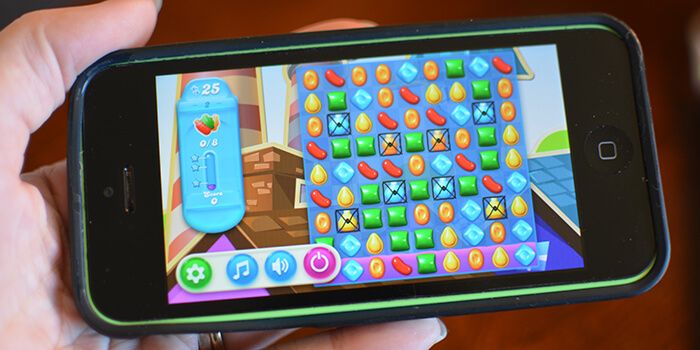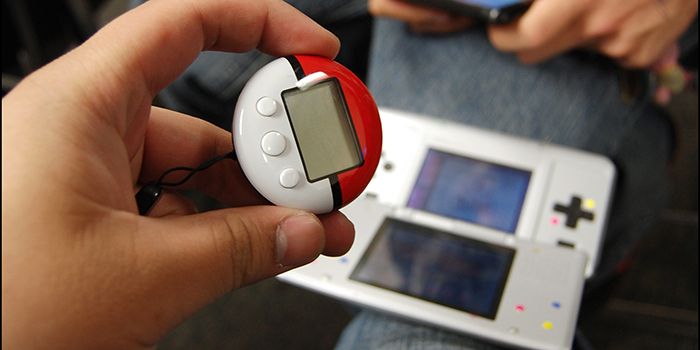Mobile gaming and traditional gaming platforms frequently attract different customers. PC and console fans typically spend their money on games that feel worth the $60 purchase, which usually means a much larger time investment. Graphics are also typically more important in traditional gaming, and many players like in-depth stories rather than quick timesinks.
On the other hand, mobile gaming tends to be all about the quick distraction. The most popular games—Angry Birds, Candy Crush, and Clash of Clans for instance—can all be played in bite-sized chunks while waiting at the doctor's office or on your lunch break. Games that take a little longer or require a little more investment—such as Device 6—may not be as successful because, despite their quality, they don't attract as large of an audience.
But what mobile gaming does have is potential. Games have largely been a static activity—something you do at rest—but taking our games with us could redefine how we play. With innovations like the Apple Watch and improved smartphone capability in the market, mobile gaming might have a lot more up its sleeve than flinging birds at flimsy structures.
Mobile Gaming Could Make Exercise a Game
Pedometers aren't exactly new technology, but as our mobile technology gets better, we have even more opportunities to turn everyday activities into games. Pokémon used this technology back with the release of their PokéWalker, technology integrated with HeartGold and SoulSilver that let players gain experience for their Pokémon by walking, along with some other features.
It isn't much, but with improved technology, this kind of thing could be great. Imagine a traditional Pokémon game developed for mobile gaming, where playing in different places rewards you with different types of Pokémon, or being able to battle people you meet through a program like StreetPass. Even if Nintendo isn't interested in pursuing these avenues, that doesn't mean they're off the market. With mobile gaming being a growing industry, other developers could easily snap up mechanics like these to develop their own games.
_____________________________________________
Page 2: The Future of Mobile Gaming
_____________________________________________
Mobile Gaming Can Turn The Real World Into a Gaming Experience
Though they tend to be tie-ins to movies or other games, alternate reality games also have enormous potential in the mobile gaming world. They don't have to be promotional material—mobile technology allows for a transmedia experience that can blend the real world with gaming in entirely new ways.
There are some apps that are doing this already. Soapstone, an app based on Dark Souls' and Bloodborne's ability to leave cryptic messages for later players, could be used in a real-life scavenger hunt. Though the app itself lacks the game aspect, there are lots of untapped possibilities here.
There are some limitations to ARGs that use real settings—if the game is confined to one city, that limits the amount of people that can play it. But the blend of real life and technology lends itself to a lot of exciting ideas, like mixing aspects of traditional gaming with, for example, live-action role playing. Games like this don't have to revolve around promotion as many currently do, but could instead pursue unique forms of storytelling in the mobile medium.
Cameras, Microphones, and Gyroscopes Offer More Opportunity in Mobile Gaming
Also currently underused is mobile gaming's ability to change the way you look at and interact with the world; it's not just about seeing the world through Instagram-filtered glasses. Games like Night Terrors are a promising look at what could be possible through the combination of GPS, cameras, and handheld or wearable technology that constitute modern smartphones.
We're just beginning to see this potential developing. Mobile games that really seize on the platform's capabilities—as opposed to just being ports of other games or using the technology in standard ways—can change the scope of mobile gaming or gaming as a whole.
All of this depends upon developers working in this medium as they work in others, concentrating specifically on maximizing the potential for mobile games. It's tempting to write off phones and other mobile technology as not fully fit for gaming, but (like other forms of entertainment) mobile gaming will have its time of infancy before it reaches its potential. Hopefully, it will come out of that infancy with a ton of exciting, revolutionary games that move beyond tapping as a game mechanic.
What would you like to see in the future of mobile gaming?



